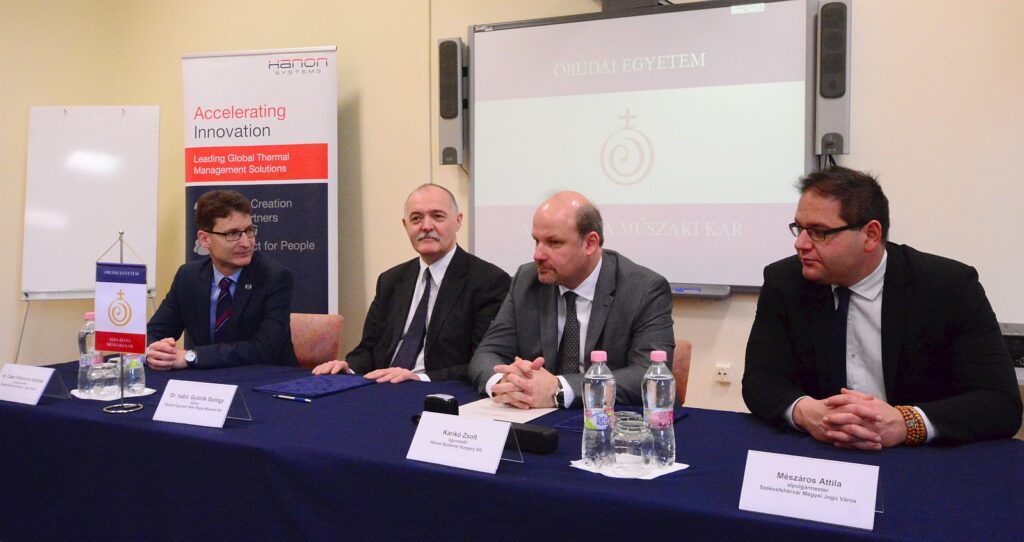Dual Training – The Alba Regia Technical Faculty contracted with the HanonSystems
The Alba Regia Technical Faculty of the Óbuda University launched its dual training program in computer engineering BSc last year in September. Within this framework, parallel to their theoretical studies, participating students get practical education at one of the partner companies and a scholarship as well.
Preparing for 2017, there are more than 150 places for admission for the students offered by the business partners of the university. More than 60 students in the five BSc branches joined the dual training last September in Székesfehérvár. From September, 2017 the partner companies will provide 215 dual training places for the Universities of Óbuda, Corvinus University and Kodolányi University in Székesfehérvár.

The agreement was signed by Zsolt Karikó, managing director of the Hanon Systems Hungary Ltd. and Dr. habil György Györök PhD, dean of Alba Regia Technical Faculty of Óbuda University in the presence of András Cser-Palkovics, mayor of Székesfehérvár and Attila Mészáros, the vice mayor.
András Cser-Palkovics, mayor of Székesfehérvár announced that the strategic agreement and the success of the local economic year of 2016 prove the necessity of involving university partners and developing technical education in the process of tackling the shortage of labor with pay rise, housing projects and relevant educational programs.
György Györök, dean of the Alba Regia Technical Faculty of Óbuda University emphasized that the Alba Regia Technical Faculty is unique within the Hungarian higher education with the wide range of disciplines for engineers. There have been preliminary discussions between the Faculty and the Hanon Systems Hungary Ltd. about joint work and education keeping in view the training of future experts locally.
Zsolt Karikó, managing director of the Hanon Systems Hungary Ltd talked about the decision of the former Visteon 15 years ago to bring research and development to Székesfehérvár. The main principle has remained the training of engineers with experience in the practical side of production meeting the ever changing an expanding requirements of the Industry 4.0 concept even during their university years.

The power unit of the Industry 4.0 concept is the ever accelerating digitization of economy and society with the basis of intelligent systems in digital nets so that a predominantly self-organizing production and mutual communication become possible among people, machines, equipment, logistics and the products.
The economical flexibility of non-series production, the effective application of resources, ergonomic production and the dynamic involvement of business partners and customers in the chain of value production are the main objectives of the Industry 4.0 concept.
Source: www.szekesfehervar.hu